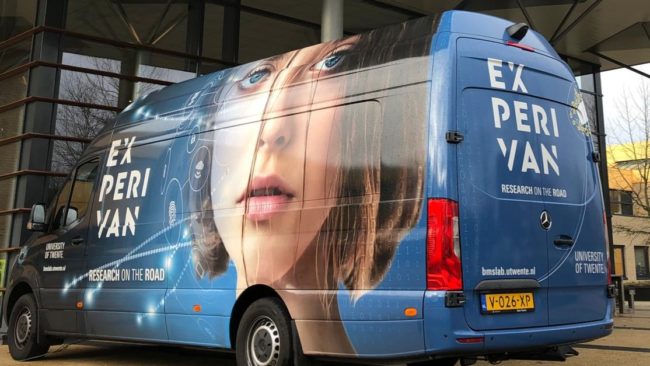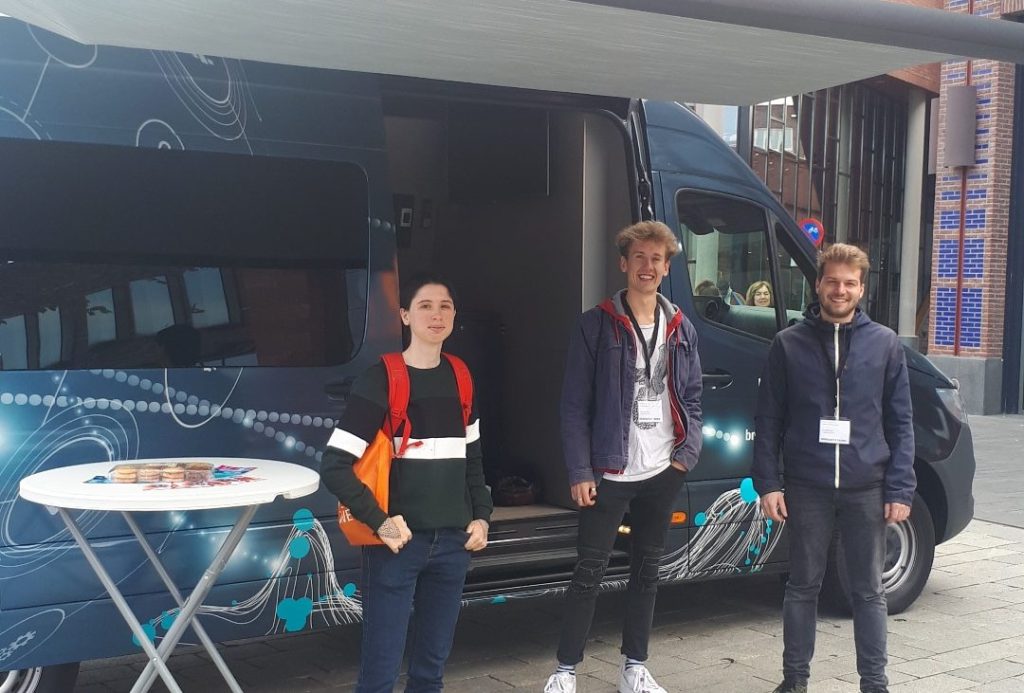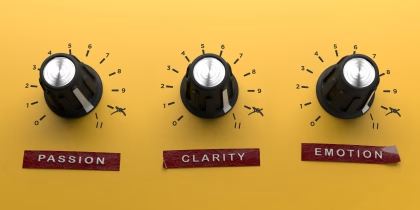In our blogs, we often write about the capabilities of the different platforms we offer in iMotions’ range of products – Be it our lab or online solutions. People familiar with iMotions’ product portfolio will also be familiar with the different strengths of each platform. Over the last couple of years, we have made it possible to conduct unparalleled multimodal human behavior research almost all over the world either online on in your lab.
Having a well-equipped lab, or an extensive infrastructure of online respondents ready to take part in your studies, is all well and good, but there are people who have neither the opportunity to come to your lab nor have access to a computer. These are the groups in society who cannot leave their homes and do not readily have access to a computer, or the skills to operate one.
The question of how to reach as many people as possible when conducting human behavior research is central to researchers. So, how do you reach these off-the-beaten-path demographics, such as the elderly, remote communities, or people who have not adopted technology at the pace of the rest of society? One solution, implemented with great success by the BMS Lab at the University of Twente, is to build a mobile human behavior lab – which they have dubbed the “ExperiVan”.
Mobile research and awareness in one convenient package
As the name suggests, The ExperiVan, is a converted cargo van built to house a fully functional human behavior research lab. It features two complete research stations, a comfortable seating area, and if not connected to the power grid, battery life for 1 -2 working days – for when you want to conduct research out in the (very) wild.
The ExperiVan was designed and built with several different use cases in mind. Most significantly, it allows the researchers of the university to go to where your participants are. If the research scope requires someone to conduct it in a naturalistic setting, the mobile lab will allow people to do just that.
This is a step away from the usual, sometimes slow, and expensive, recruitment channels researchers have relied on for online or lab recruitment. This version of recruitment and data collection comes with the added benefit that you can potentially reach an audience that otherwise would not have been recruitable through regular channels as well as getting these participants’ immediate responses as they are in a more naturalistic setting than if they were recruited beforehand.
Other prime demographics for the ExperiVan are those who cannot leave their homes for whatever reason. This includes people with physical and mental disabilities, the elderly, and even prison inmates. A perfect example of this was when the ExperiVan was used as a central tool to study the effects of social distancing and the feeling of isolation in the public, through the BMS lab’s own “IsolationCoach” app at the height of the COVID-19 pandemic.

The impact of isolation during COVID was a national concern in the Netherlands, which is why the ExperiVan was the perfect tool for bringing the research out into the country for testing. The team from the BMS lab tested the app in the cities of Bunschoten and Dronten, enabled by their mobile laboratory.
Take it for a spin and conduct research.
At the BMS lab, the foundational philosophy is that of accessibility and democracy. Everyone, even bachelor students, can use all the equipment in the lab, provided they know how it works – which they will be instructed in. This philosophy extends to the ExperiVan, and aside from being able to use the lab equipment, the only requirement is a driver’s license, some driving experience, and a quick test to show you know how to maneuver the van. This provides students, researchers, faculty staff, and academic collaborators, who are all allowed to take the van out, a rare opportunity to conduct research in places that not even people with research grants and resources might be able to go.
Access to human behavior research – for all.
Promotion of the BMS lab, the University of Twente, and science, in general, is a central mission for the ExperiVan as it aims to bring awareness of human behavior research to people all over the Netherlands and beyond. The van has been equipped to transform into a pavilion so that wherever there is an event, the teams from the University of Twente can roll up and spread the word about human behavior research and what it entails.

With a fine combination of high-tech biosensors and explanations at eye level, the people from the BMS Lab involve and engage with children and adults alike. As an example, they use “Where is Waldo” books to show children the basics of eye tracking when they go to schools and science fairs for children.
The sort of “awareness through research” work the BMS lab does with the ExperiVan is best exemplified in this video of the BMS team going to the Stoervoer Festival and utilizing their mobile lab to educate and inspire the festival-goers.
Scalable and globally implementable
The idea of having a fully equipped mobile human behavior research lab is something that has been on the wishlists of universities, agencies, and companies alike for quite a while. The reason why we like the iteration of the idea from the BMS Lab is that it can be implemented anywhere in the world. Demographics that are housebound, incarcerated, or are unlikely to sign up for data collection efforts, are often in danger of not being taken into account when a new product or service has to be tested on users. With a mobile lab, you can park outside a care home or at a prison and give these often-unheard people a voice and gain the valuable insights they possess.
If you are interested in knowing more about what happens at the BMS lab and with the ExperiVan, we visited the BMS lab and did an interview with lab director Jan-Willem van ‘t Klooster, enjoy.
If you believe that building a vehicle like the BMS Lab ExperiVan and taking your lab on the road could be beneficial for you, get in touch and we would be happy to consult on that, put you in contact directly with the BMS Lab, or answer any other question you might have.
Let’s talk!
Schedule a free demo or get a quote to discover how our software and hardware solutions can support your research.











